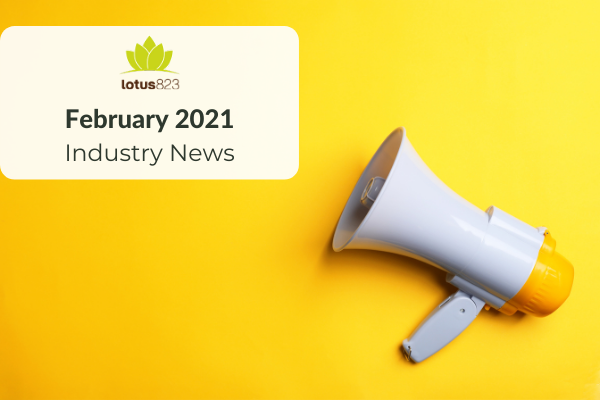
February was an interesting month in marketing, with Super Bowl campaigns looking different than previous years and social media updates that took us by surprise. LinkedIn began developing their Freelance Marketplace, TikTok implemented new methods to help stop the spread of misinformation, Pinterest announced a major revenue increase from shopping ads, and Instagram made it easier to bring back deleted posts. Continue reading for the latest updates on social media platforms and the industry below!
Social Media
Instagram’s Recently Deleted Feature Lets You Change Your Mind About Deleting a Post
Instagram is making it easier to bring back deleted posts! The app rolled out a “recently deleted” feature that allows users to review content they’ve deleted, including photos, videos, reels, IGTV videos, and stories, to decide if they’d like to restore them. Instagram is positioning this feature as a way to help against hacks, particularly if a hacker gains control of an account and begins deleting content. Deleted items will now remain in a folder for 30 days, and if they are not restored, will be permanently deleted after that point. This update is extremely helpful to users looking to archive content or keep posts without making them visible to the public. As the app benefits from having more content from users, and subsequently more user data, it finds new ways to encourage users to continue posting and even strategize the kind of content they’d like to share or archive.
LinkedIn’s Developing a New Freelance Marketplace Platform to Facilitate New Opportunities
LinkedIn is getting a slight makeover, announcing that the platform is developing a new Freelance Marketplace Platform enabling businesses to find, connect with, and pay freelancers. Users can have their profile show up for relevant offers by activating the Showcase services feature on their LinkedIn, ensuring that they’ll be displayed for relevant work. The process also includes the development of a digital wallet to facilitate payments to freelancers and gig workers. This latest app update can open up a range of new opportunities as businesses continue to work from home and have the ability to employ remotely. The update may have a major impact on LinkedIn’s engagement rate, boosting advertising opportunities and giving freelancers more means to promote their services.
TikTok Implements New Prompts to Help People Consider Before They Share
This month, TikTok took responsibility to help counter inauthentic, misleading, or false content. The app recently began removing more misinformation and partnered with PolitiFact Lead Stories and SciVerify to help assess content accuracy. From a user’s perspective, banners will pop up on videos to notify them if a video has been reviewed for accuracy but cannot be conclusively validated. The video’s creator will also be notified if their video was flagged for unsubstantiated content. If a user wishes to share a flagged video, they will be reminded that the video may be inaccurate and prompted to hit “cancel” or “share anyway”. This feature has rolled out globally over the course of February in the U.S. and Canada, in an attempt to continue to help users decipher between content that expresses fact versus opinion.
Pinterest’s Ascent Continues as Holidays Spur Explosive Adoption of Shopping Ads
Pinterest recently announced that their revenue jumped 76% year-on-year to $706 million at the end of 2020, which were made possible by new advertising offerings and an expansion of shopping capabilities, according to Pinterest’s latest earnings report. An extended holiday period drove up their advertising demand, and retailers like Lego and Nespresso showed the strongest growth as they successfully leveraged the app to capitalize on the holiday season. Pinterest’s implementation of Lens, their visual search tool with added commerce functionality also aided in their growth. As more people flock online to stay connected and entertained, Pinterest plans to broaden its tent of advertisers and appeal to an increased number of monthly active users.
Industry News
Brands like Coke, Budweiser, and Pepsi Benched Their Stars From In-Game Commercials This Year
This year’s Super Bowl looked much different than previous years as so many all-star brands skipped advertisements during the big game. Big brands like Coke, Pepsi, and Budweiser decided to reevaluate their spending by reallocating funds toward COVID-19 relief or assessing where they’d like to spend their millions as the pandemic continues to take a huge financial toll. Despite the lack of big-brand names during this year’s Super Bowl, there was plenty of screen time left for other brands to gain some recognition. From Jeep to DoorDash, there was no shortage of creative ads to watch. After such a different year, it will be exciting to see how brands plan on advertising in the coming months and years!






